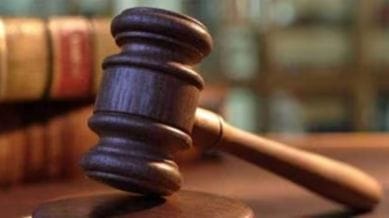Stay updated with the latest - Click here to follow us on Instagram
Aasiya Andrabi case: Delhi court rejects NIA plea to submit more evidence after conclusion of arguments
The NIA had moved a plea to submit additional evidence such as recovered emails and SMSes from the accused’s phones, purportedly acquired from American authorities, months after the conclusion of arguments in the trial.

A Delhi court last week rejected the National Investigation Agency’s (NIA’s) plea to submit additional evidence against separatist leader Aasiya Andrabi and two of her associates through a supplementary chargesheet after final arguments in the trial have concluded.
Andrabi, the leader of the banned Kashmiri outfit Dukhtaran-e-Millat, was arrested in 2018 for allegedly using various platforms to spread “insurrectionary imputations and hateful speeches” that endangered the integrity, security, and sovereignty of India.
monthly limit of free stories.
with an Express account.
“The situations where some material is placed on record after filing of an initial charge sheet are not unknown to law[s]. For instance, during investigation, if some material has been sent for expert analysis and submission of report[s] concerned is taking time, the said material is placed before the court after filing of the charge sheet or during trial,” Additional Sessions Judge Chander Jit Singh said in an order dated September 10.
“However,” the order said, “an important aspect in this regard is that the charge sheet mentions this fact of some other material being expected to be collected and to be filed during the course of trial.”
“With regard to material for which no submission has been during final arguments either in the charge-sheet or in evidence arguments that such material is expected to be brought on record, to accept the request to invoke power u/s 311 CrPC will be stretching the interpretation and application of same too far as well as too thin,” the court said.
Section 311 of the Code of Criminal Procedure, 1973 (Section 348 of the Bharatiya Nagarik Suraksha Sanhita, 2023) empowers a court to summon any person as a witness, or examine any person, or admit any material it finds essential, “at any stage of any inquiry, trial or other proceeding”.
The order noted that “The witnesses/ persons who are sought to be summoned in terms of Section 311 Cr.PC are such who the court finds essential for the just decision of the case, however, if any material is not in the knowledge of the court, as to how invocation of this provision can be accepted.”
The NIA had moved a plea to submit additional evidence such as recovered emails and SMSes from the accused’s phones, purportedly acquired from American authorities, months after the conclusion of arguments in the trial.
The NIA had argued that the documents which it wanted to place on record were important to establish the case. They had also relied on Section 311 of the CrPC.
The judge, however, rejected this argument, saying the material was “additional at best”.
“It seems that prosecution on the basis of this recovery of e-mail and phone number intends to establish the fact of social media accounts having associated with the accused. Hence, the material, at best, is an additional material on behalf of prosecution…,” ASJ Singh said.
Andrabi’s lawyers had argued that the prosecution could not introduce additional material after the trial had concluded and the judgment was reserved. They had said that the plea was an afterthought, filed solely to fill gaps.